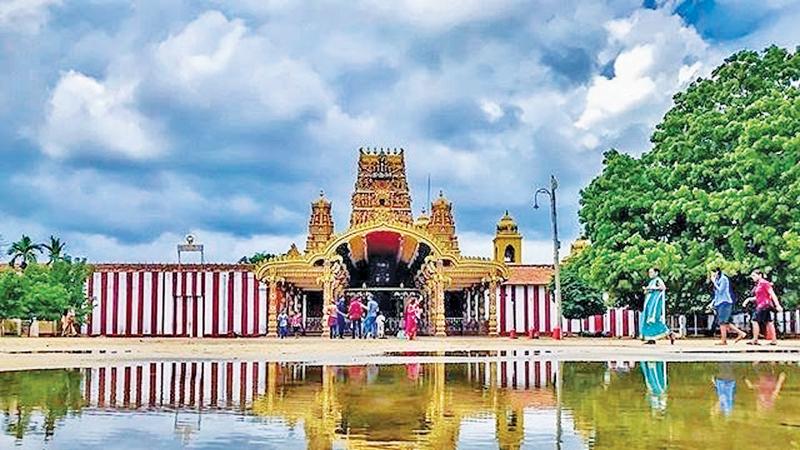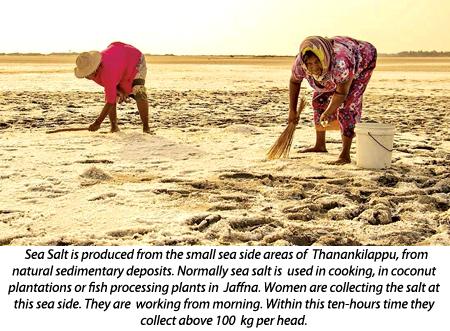
Growing up in Jaffna, Bhavana Sivayokam often wondered why her beautiful city had been reduced to a site of war, its victims and their stories revealed to the outside world. “We were being stereotyped... you know they say Western media portrays Africa in a certain way? Somewhat like that,” says Sivayokam, who studies medicine at the University of Jaffna.
Jaffna, like many areas in Sri Lanka’s Northern and Eastern Provinces, has suffered the acute impact of the civil war and its aftermath. “But there’s surely more to the city than that,” says Sivayokam. “Not many are interested in seeing the resilience, hope and aspirations in our midst.”
 Frustrated with the tone of media coverage, she started ‘Jaffnapedia’ with a friend. The Instagram page seeks to capture everyday sights of Jaffna’s people and places. “We also invite others to send us entries and use what we think isn’t controversial. It has been doing well,” she says. The page features visuals in both colour and black and white, which offer a slice of Jaffna that mainstream media seldom zooms into.
Frustrated with the tone of media coverage, she started ‘Jaffnapedia’ with a friend. The Instagram page seeks to capture everyday sights of Jaffna’s people and places. “We also invite others to send us entries and use what we think isn’t controversial. It has been doing well,” she says. The page features visuals in both colour and black and white, which offer a slice of Jaffna that mainstream media seldom zooms into.
A new lens
A group of young Jaffna residents such as Sivayokam have chosen social media platforms to offer a new lens to look at the city, providing a view that goes beyond the scars of the war.
“There’s so much of culture, art, colour here,” says Suyothami Yoganathan, adding that her Instagram page, ‘The seeker’s clicks’, helped her exit her “bubble”. “I was mostly content in my comfort zone until I started encountering a different world outside. I started off capturing facets of Jaffna’s scenic beauty, and slowly moved towards human-centric themes,” says the student of science and mathematics.
From thinking that social media was “a waste of time” to building her page with varied images of people living in Jaffna, she made a big, but enjoyable shift, she notes.
Nandakumar Sanjayan started blogging in 2009, when he was doing his A-levels (Class 12). It was the year when the civil war reached its gory final phase before the armed forced crushed the rebel Tigers in May that year. Tens of thousands of civilians died, raising difficult questions about war crimes and accountability — a decade since, the questions linger.
“Affected by all that was going on around us, I started blogging at that time.
Then, gradually I began taking photographs. I studied bio-engineering and my field work took me to different, new sites and led me to many people. I started telling their stories,” says Sanjayan, on how his ‘Humans of Jaffna’ page came to be.
While much of the world was focusing on death and destruction, Sanjayan started paying attention to the impact of war on indigenous livelihoods and cottage industries like pottery and weaving. “The response has been good, especially from the Tamil diaspora. Our contemporaries, who grew up abroad, say they feel a connect with their hometown when they see such posts rooted in Jaffna’s reality today,” he says.
The young citizen journalists’ idea may be novel and their intentions good but building credibility is equally important, they emphasise. They enrolled for a course with journalist Benislos Thushan, and brainstormed media ethics and responsibility as a group. Backed by the American Centre, Thusan’s program has drawn 10 batches of students eager to learn more about digital storytelling.
“Almost 200 students have come out of this training program and we are constantly updating our modules,” says Thushan, who has also been part of many peace-building initiatives. “Everybody has a smartphone and likes taking pictures. But being a citizen journalist comes with greater responsibility.”
His sessions focus not just on storytelling skills, but also on aspects like protecting anonymity of sources or photo subjects when requested, being sensitive and politically correct.
“Countering foreign media that tends to stereotype us is one thing, but the content in local media too is very troubling. It thrives in polarising our people,” he notes. “Those who tell our story have the power to shape that narrative. We lose our power when we lose our narrative.”
As the young team tries to fill the void in mainstream media, Thusan tells them, “we must seize our narrative.”
Courtesy: The Hindu
Picture and caption courtesy: instagram.com/jafnapedia
